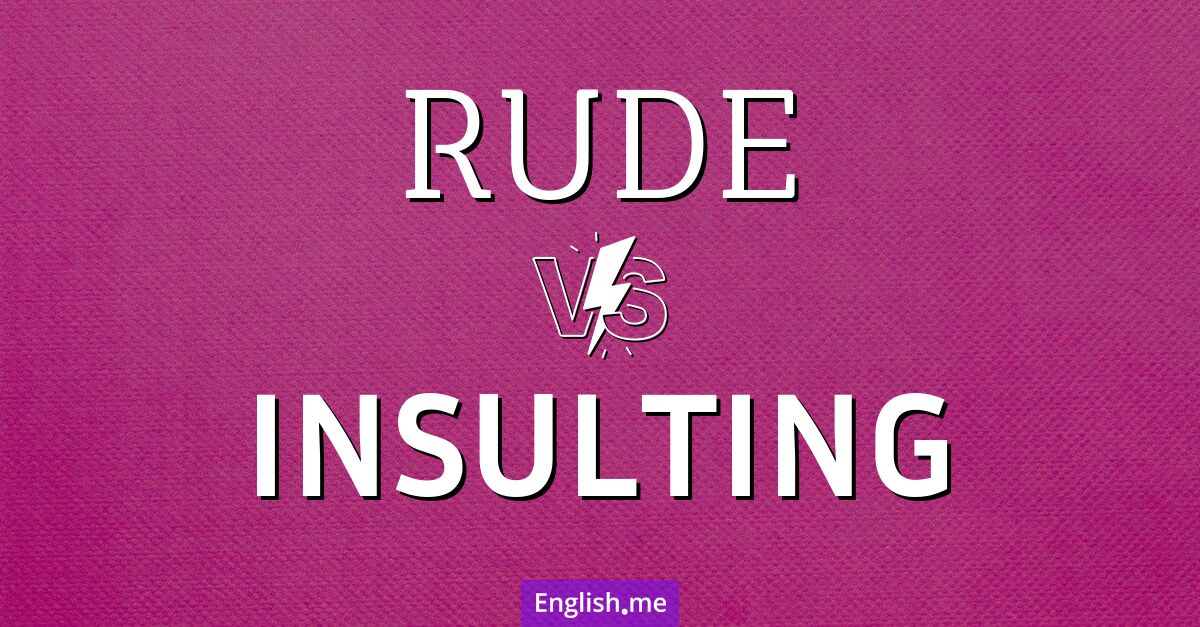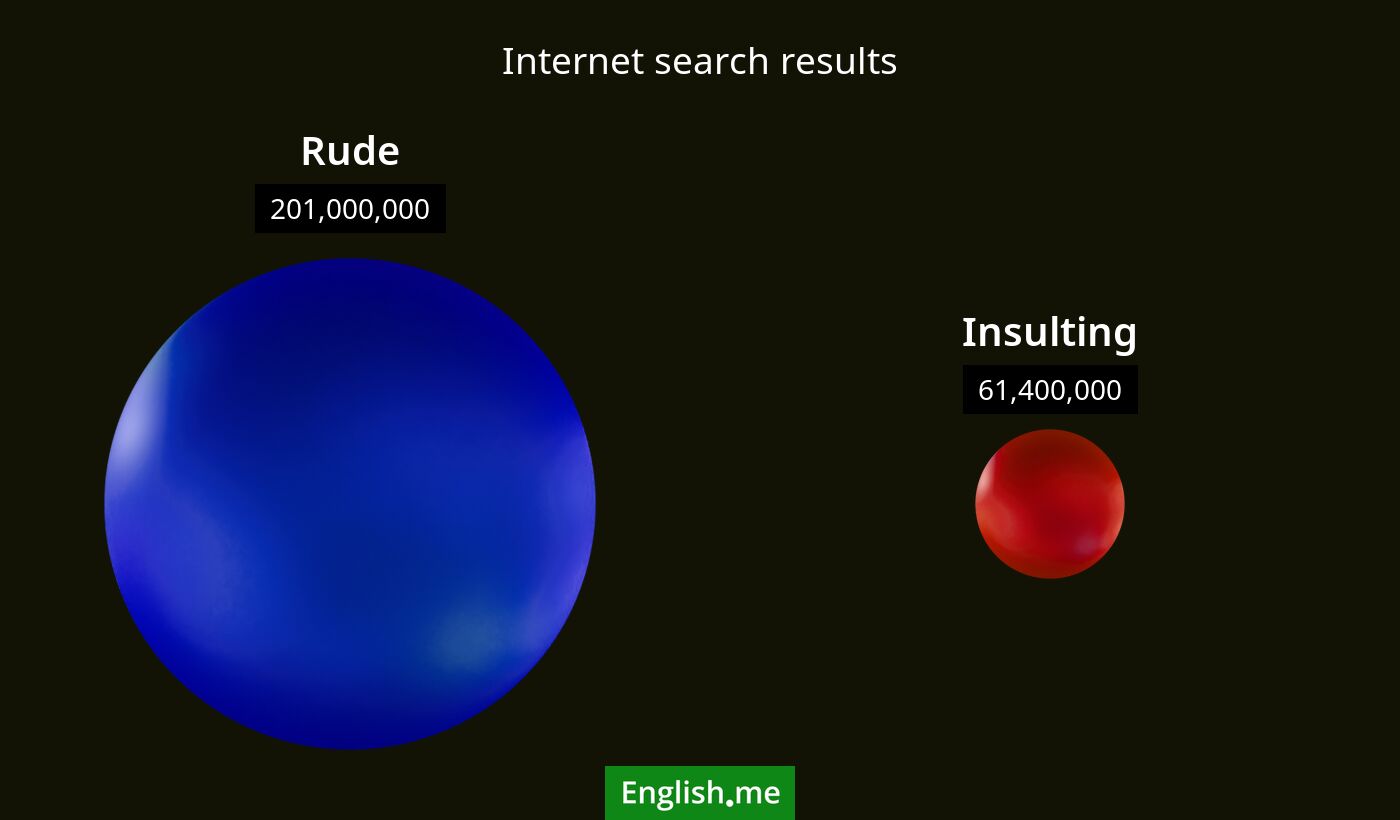Exploring "rude" vs. "insulting": nuances in impoliteness
Reviewed and edited by  Lloyd Cooper 01/11/2024, 21:06
Lloyd Cooper 01/11/2024, 21:06
English.me team member

 What is similar?
What is similar?
Both "rude" and "insulting" describe behavior or language that can offend, hurt, or show a lack of respect toward someone.
 What is different?
What is different?
"Rude" implies a lack of manners or politeness, often unintentionally causing offense. "Insulting" specifically means intending to belittle or affront someone.
 Which one is more common?
Which one is more common?

 Examples of usage
Examples of usage
Rude- It was rude of him to interrupt her while she was speaking.
- She found the waiter's attitude quite rude when he ignored her requests.
- His comment about her work was not just unkind, it was downright insulting.
- She considered the offer insulting given her years of experience.

 English
English español
español française
française italiano
italiano deutsche
deutsche 日本語
日本語 polski
polski česky
česky svenska
svenska Türkçe
Türkçe Nederlands
Nederlands